The Primacy of the T3-MCC Game
In 2019, the game Coin Master by Moon Active became one of the top-grossing mobile titles and hasn’t slowed, ascending to the summit of not just the casino charts, but the broad games category. A brain-dead three-reel slots game at its core, the title cleverly combines a casual Saga Map and city building meta-game with effective mid-core multiplayer mechanics such as attacking, defending, and stealing… ultimately making it appeal far beyond the typical casino player. And this isn’t a one-off anomaly. In Spring of 2023, Monopoly Go! rehashed a similar formula using dice and the classic board game rather than a slot machine, giving Scopely a huge hit — grossing $2 billion in under a year.
What makes these strange hybrid “casino battler” games tick? We’ll give these games a (clunky but precise) name — the T3-MCC — and lift the curtain and delve beyond the obvious.
Further, we’ll muse about what other casual and mid-core mechanics could potentially be blended with an inner casino loop to entice and keep players hungry to return, play, and spend. Hopefully this article will deliver a medley of soup-starters that your own studio can spin until it hits the jackpot.
History
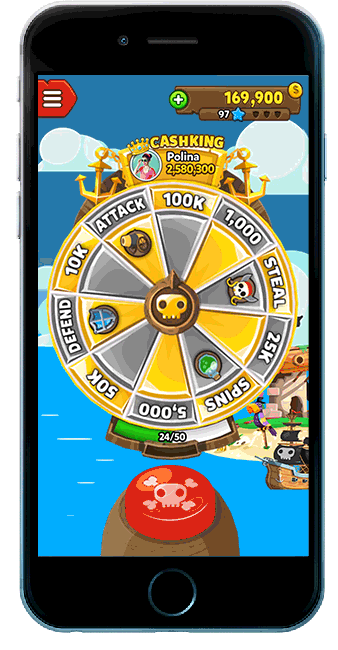
It all started as Cash King — a one-button Wheel of Fortune social casino game released in 2010 on Facebook, created by Israeli company Jelly Button (later acquired by Playtika and renamed Pirate Kings.) The innovation of the game was that you could “win” not just money, but also the chance to attack a Facebook friend and steal their money.

Then in 2016 another Israeli company, Moon Active, launched Coin Master on mobile featuring Pigs, Vikings, and Coins.
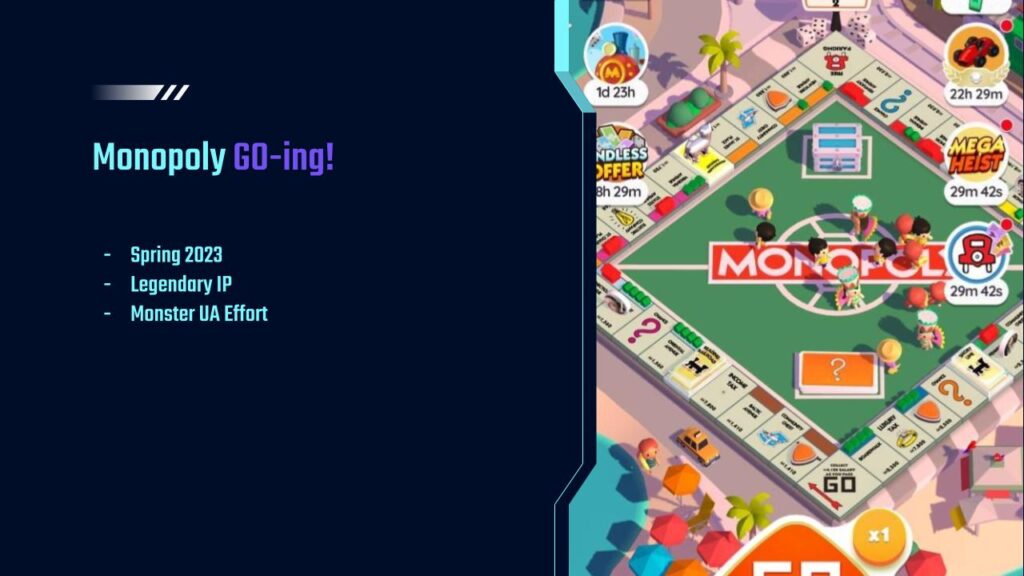
Finally in Spring of 2023, Scopely released Monopoly Go! dumping millions into user acquisition and turning the game into a monster.
All in all there are a few keystone games in this genre, each achieving an envious chunk of paying players — and the leaders scooping up a ridiculous amount of revenue.

(Lifetime revenue values guesstimated from various sources.)
How To Play?
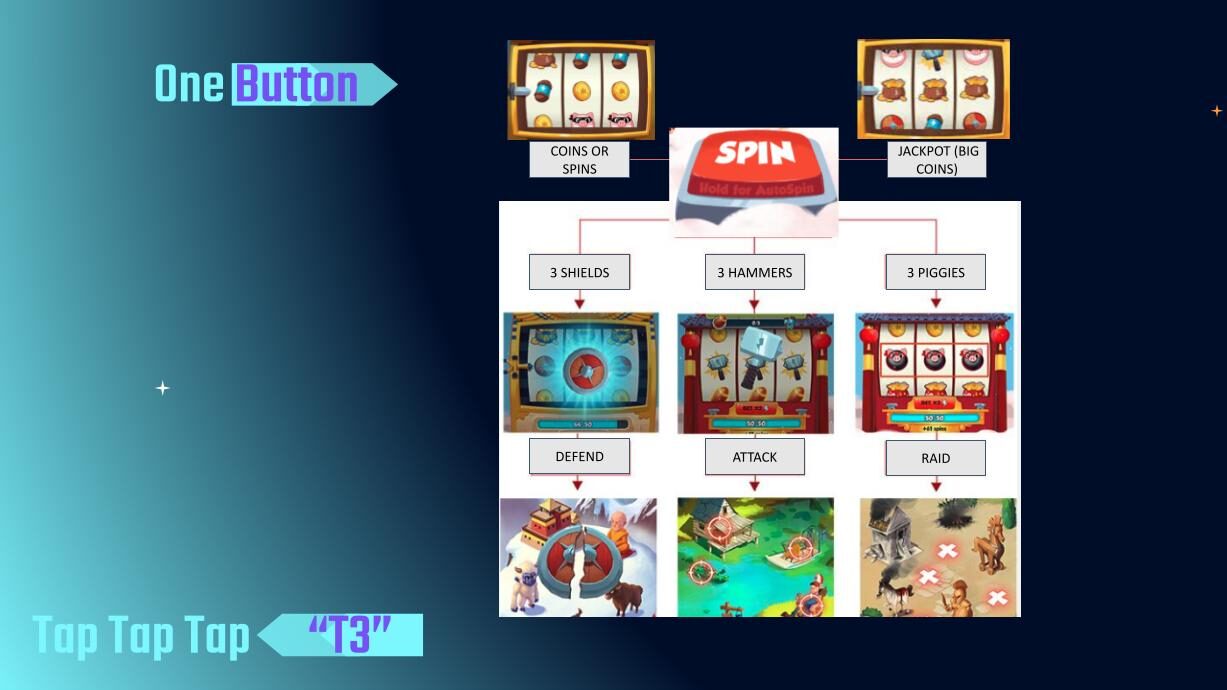
We can call the core mechanic in this game tap-tap-tap or “T3.” It’s as simple as tapping a big red (yes, always red) button.
Based on random results from that tap, the player either earns coins or, more rarely, enters “bonus game” modes of defense, attack, and raid.
Some of the core casino games are a fortune-wheel, some use dice and pawns moving around game boards, and others use slot machines — all of the games at root have the same tap-tap-tap big red button gameplay:
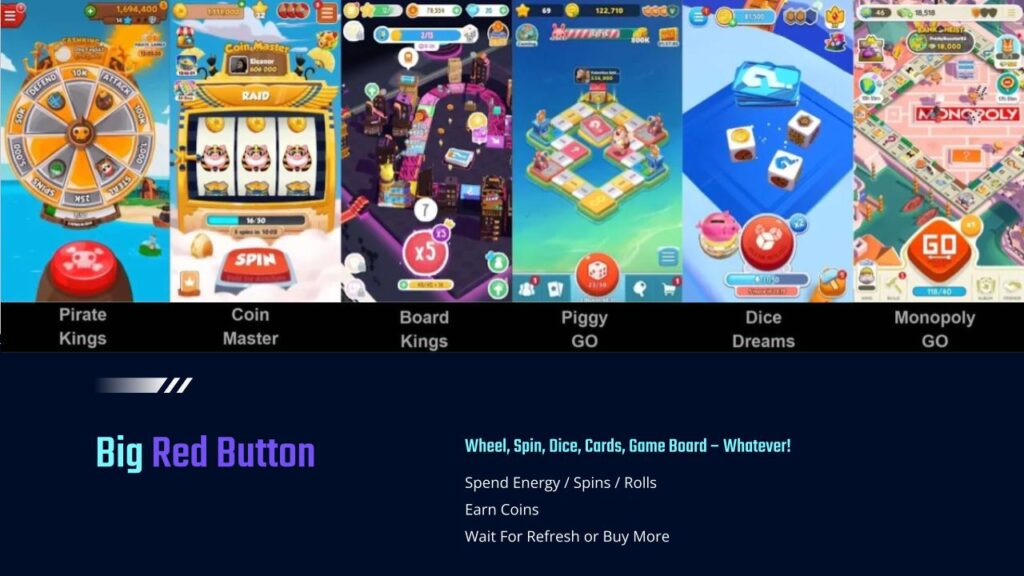
Players spend an energy currency — spins or rolls. They tap-tap-tap the energy away. They earn variable coins in return and use those coins to progress.
The progression meta-game is usually a city builder, but also in the low-agency tap-tap-tap mold. There may be some minor choice of which part of the island, city, tower, or area to upgrade — but ultimately the goal is to upgrade the entire area and proceed to a new one.
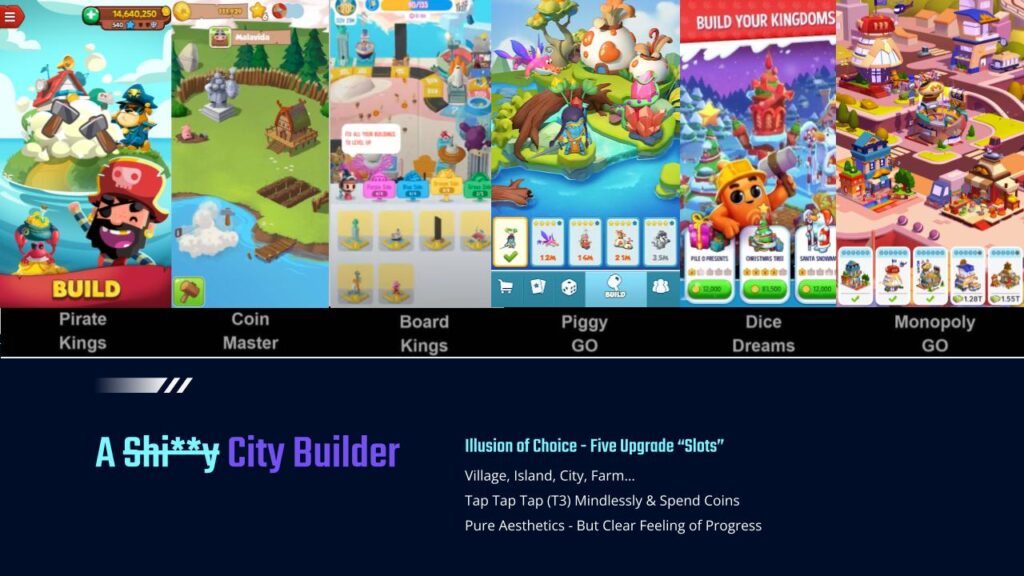
Finishing an area lets the player make progress through a Saga Map:
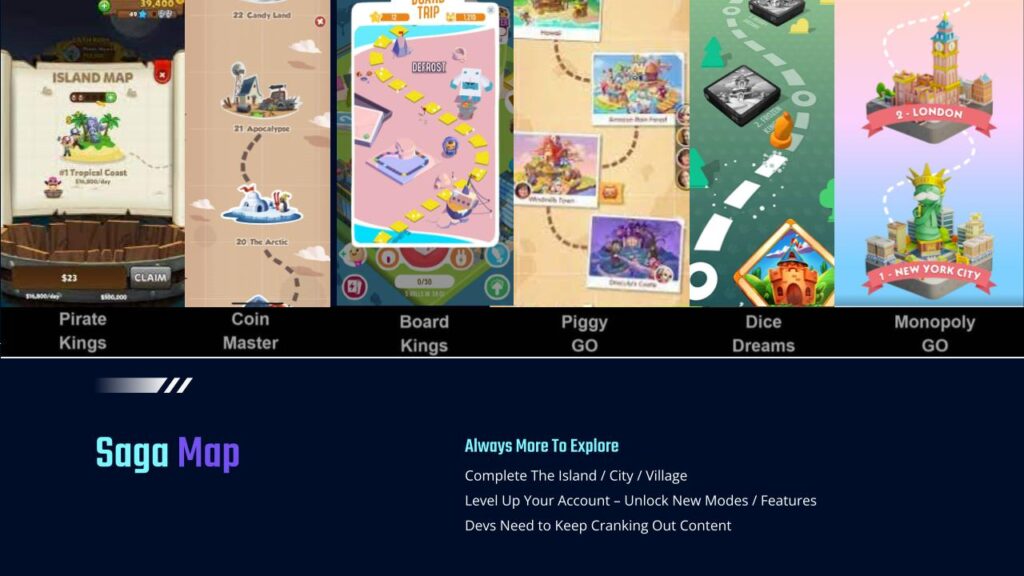
Each new area may also unlock new modes and features such as boosts, multipliers, sticker albums, quests — often making the core coin payout worth more. Of course, each new area also costs more and more coins to upgrade.
Where things get interesting is the occasional chance to attack or raid.
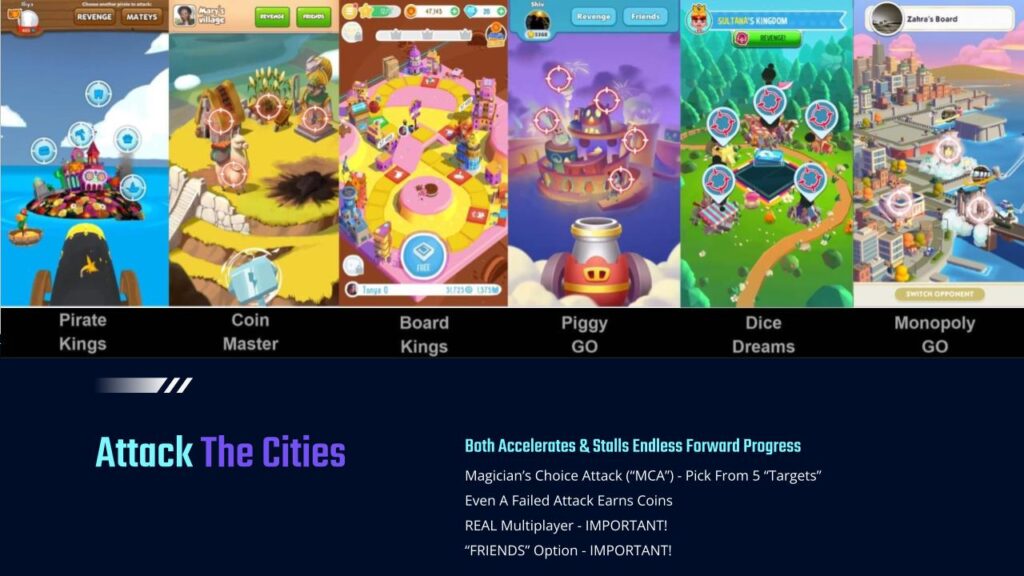
Attacking other player’s cities earns the player tons of coins — and also helps stall the other player’s endless forward progress.

Raiding, meanwhile, can help steal coins from players who are hoarding them and who are not building their city fast enough — also stalling their forward progress.
Attacking and raiding are also just tap-tap-tap, but they feel more like an active “real game.” Players are given agency in choosing a treasure chest to open, a spot to dig for treasure at, the type of building to attack. Ultimately though it’s just Magician’s Choice Combat (MCC) — the choice is illusory as the outcome is fully pre-determined.
Hence, the T3-MCC game.
Ultimately the core loop looks something like this, with a very simple energy-to-coins-to-progress loop while actively playing and a more subtle idle offline economy where the longer you stay away the more energy is gained and the more coins/progress are drained.
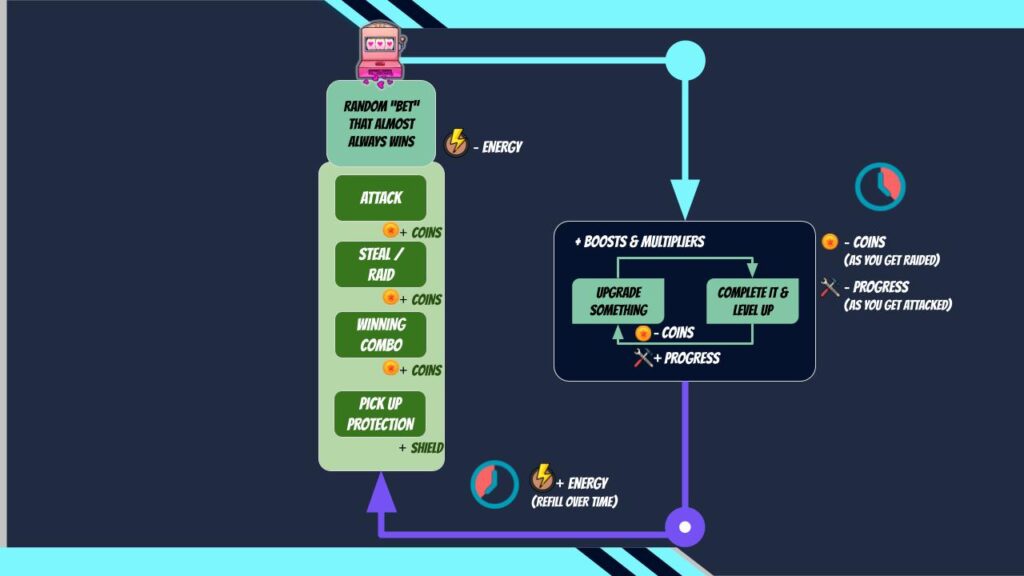
Under The Hood
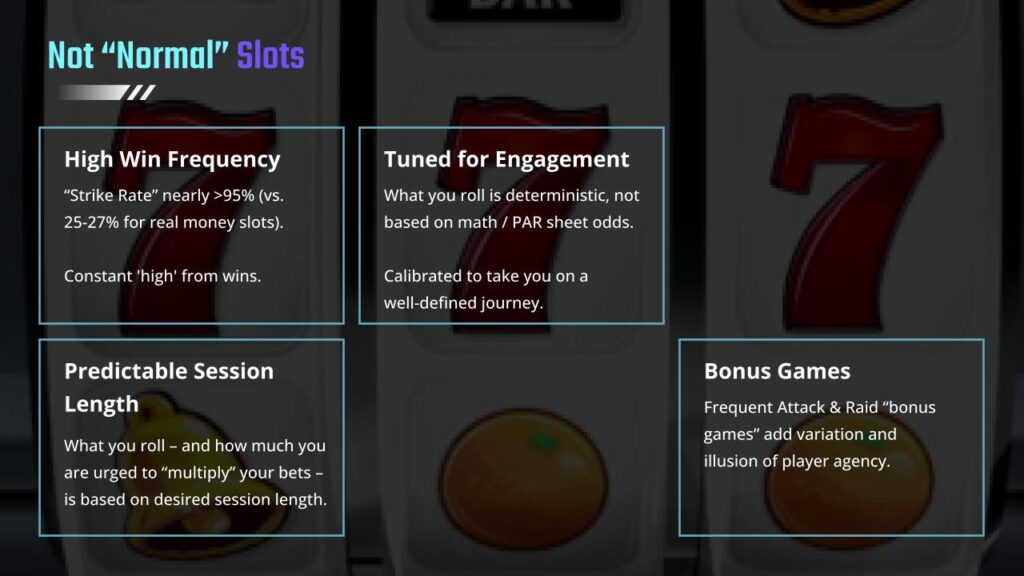
These are not typical social casino games. On one level this is obvious since players spend energy to spin / roll, not coins. In other words, players are gambling with time and not money.
Coin Master slots doesn’t use a PAR sheet and the usual “math” for slot machines — a return to player (RTP) that guarantees a player will always, in the end, run out of coins. Instead, coins are given out pretty freely. But energy will be used up quickly. Further, Monopoly Go dice rolls aren’t just random rolls. Rather — the game outcome is very well-tuned to achieve precise results:
- High win frequency — always feeling like a winner.
- A huge amount of attack and defense cycles vs. the rare bonus games in most casino titles.
- Energy used up to make sure the session time is predictable. The session length may differ based on the player type — depending on whether they are a payer, highly engaged user, etc.
The main “faucet” in the game to earn coins is via attacks and raids. When you are attacked / raided, you actually don’t lose that many coins — just a fraction of what the person who attacked you is earning. And there’s a limit to how low you can be battered down. That said, the hurt you feel when you lose money is a strong motivator. When it’s your friend that ripped you off, it feels even more visceral.
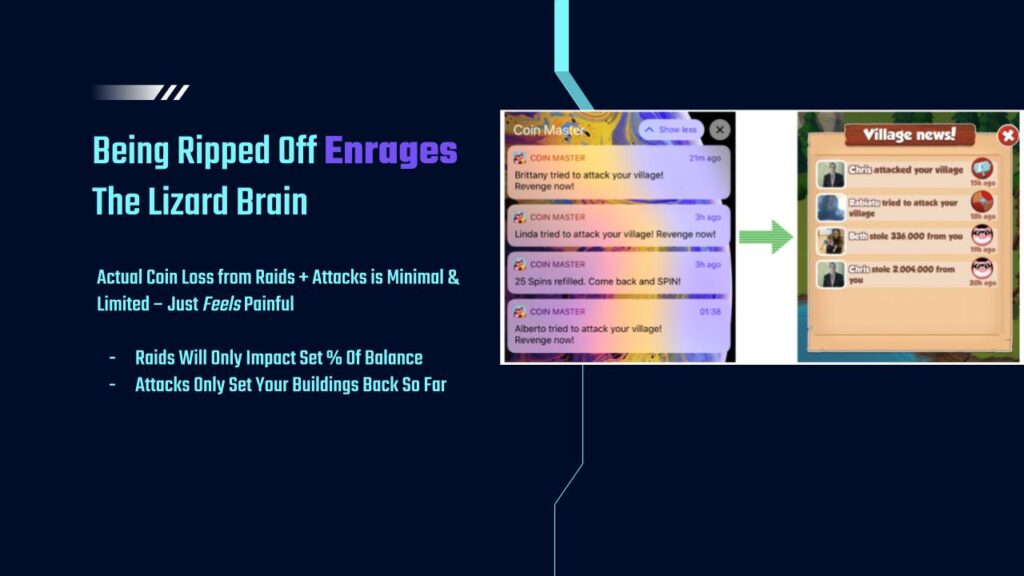
But the key thing to be aware of in these games is that the combat is actual synchronous multiplayer and a key part of monetization.
When you get attacked in real-time during your session, it often will set you back just enough to fail completing your city / village / island — all of the grinding work you just did to upgrade will be undone. Seeking vengeance, you and your blood-thirsty frenemy will enter cycles of defend & attack — ultimately only one will triumph. This becomes a strong motivator to spend a bit on in-app-purchases and get “just a bit” more energy to beat your friend into submission. No better feeling!
In fact, the only “real” choice a player has during attack is who to target — either a random opponent or the friend who just invaded them.
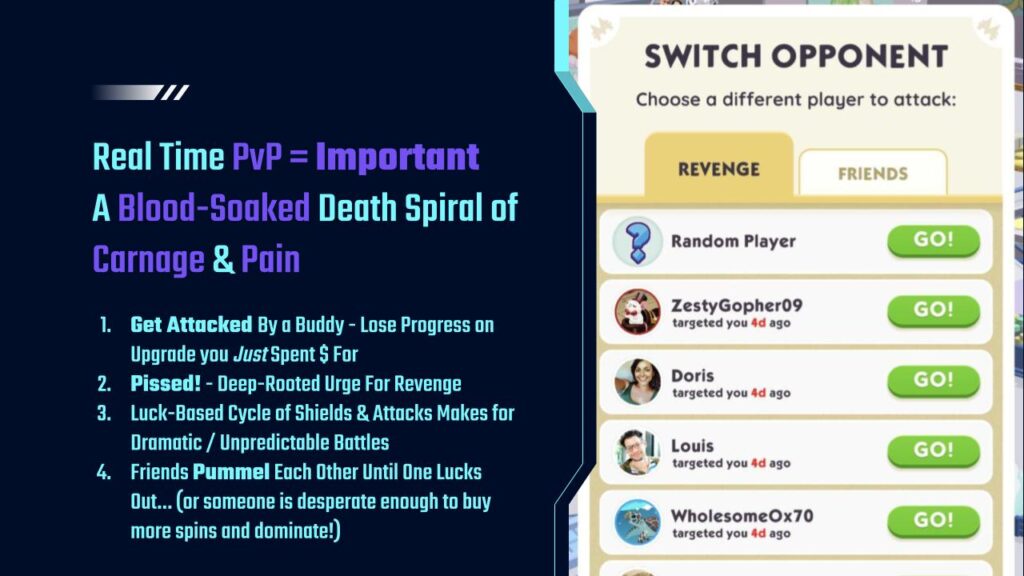
During the casino tap-tap-tap portion of the game, the only genuine choice a player has is how much energy to risk. The more you risk, the more you may earn. If you don’t have a lot of time to play you might as well take a big swing — maybe you’ll get lucky.
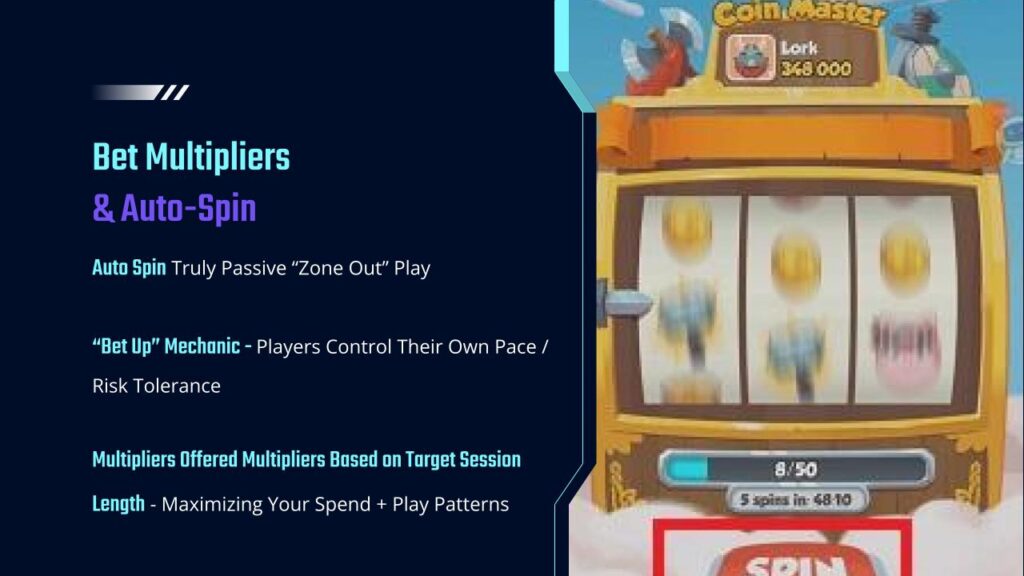
The games let you enter an “auto-spin” mode for fully passive play, to zone out. But when you reach a raid or attack sequence you must tap-tap-tap… this keeps you on your toes.
Live Ops: Tournaments
Flash tournaments add a lot of variation to the session. Trying to get to the top of a leaderboard and get the amazingly high-value reward is a good reason to use a big multiplier, take big risks… and run out of energy quickly!
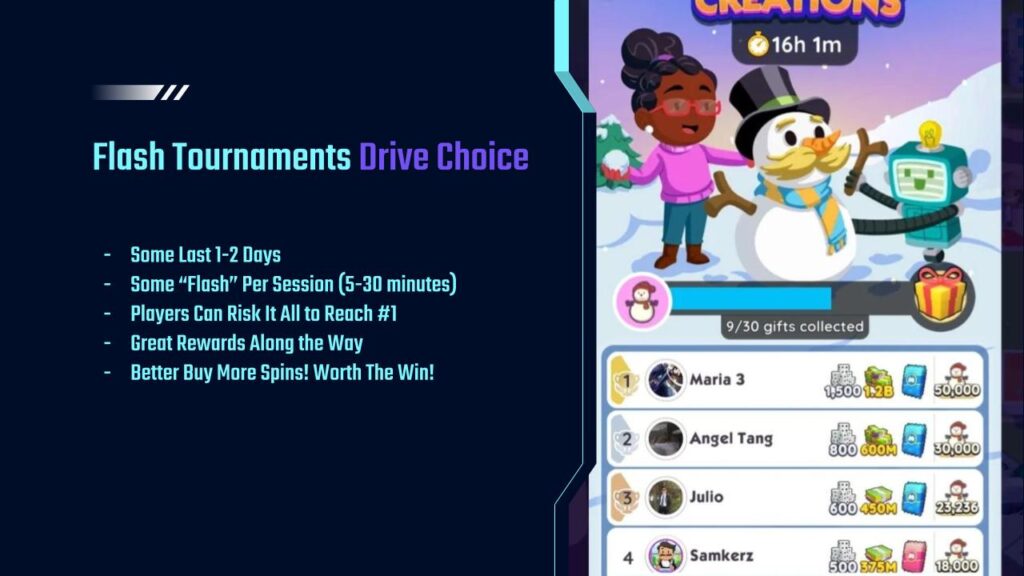
In addition to leaderboards, there are often plenty of short-term goals for you to complete and gain outsized rewards. Once again, your instinct as a player is usually to take that big risk — using energy quickly. Of course, these accelerator events are calibrated carefully by the game publisher so that you often run out of energy just before your complete your goal. Nothing a little trip to the IAP store won’t fix.
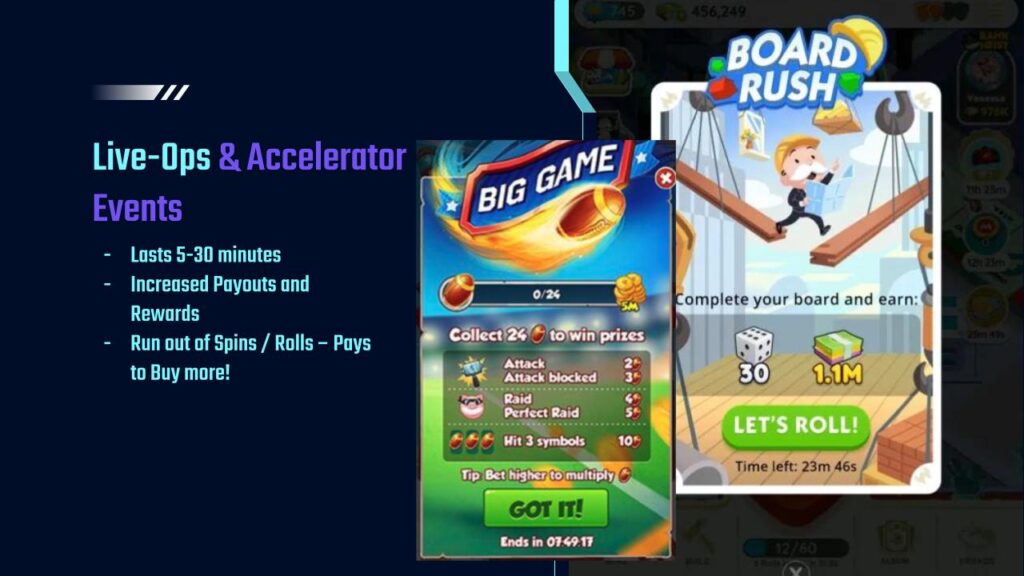
Social
Finally, every “old school” element from social games is present. There are gift walls, incentivized invites, and Facebook groups where you can trade stickers / cards. This leads not only to tons of virality for the game, but also makes it likely you’ll be battling your friends — which is a key source of monetization.

The games also do a great job creating their own friend graph, hooking you up with new friends — anyone who is a friend of a friend or seems have the same session play-patterns as you may be considered a potential new “friend”.
Why Are These Games So Damn Popular
It’s not surprising that human attention span has gotten really limited since the advent of the smartphone.
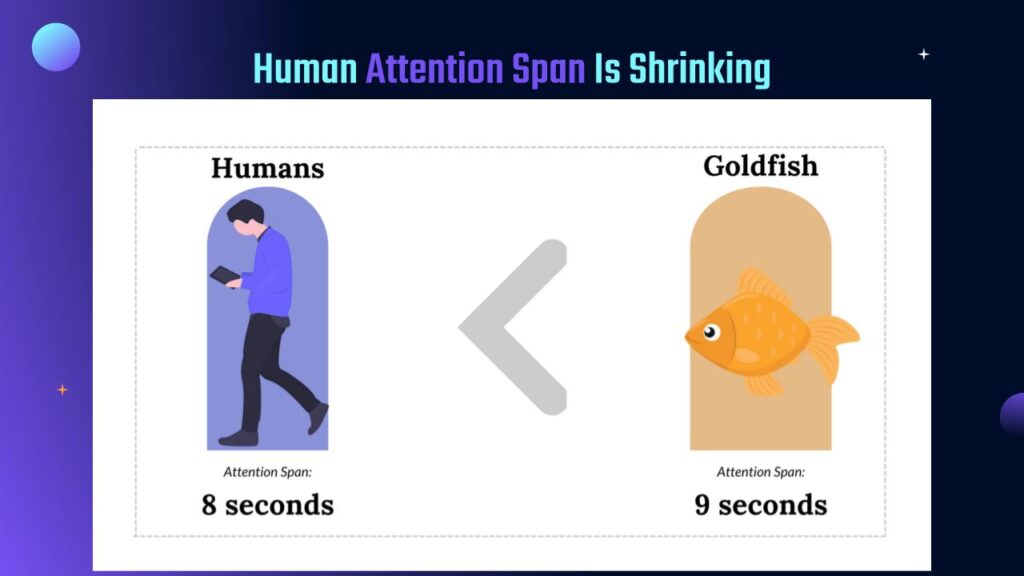
As the power of Tik Tok demonstrates, media that is quick and effortless to consume is becoming ascendant.
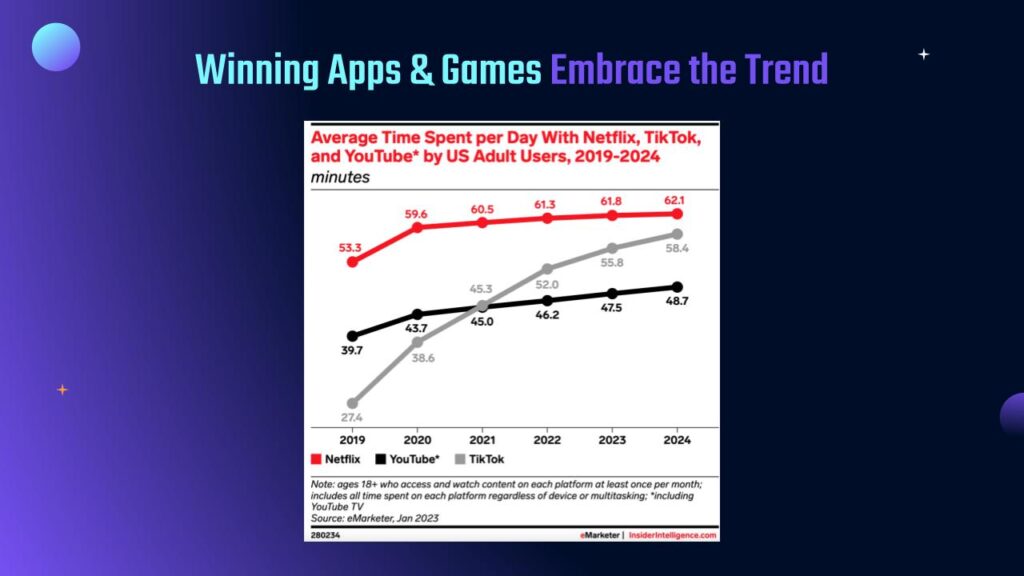
T3-MCC games are the natural evolution of “Game Mechanic Collapse”. The biggest hits throughout the history of mobile games have mastered reducing / simplifying game mechanics and presented them in new ways to low-attention-span, always-on-the-go players.
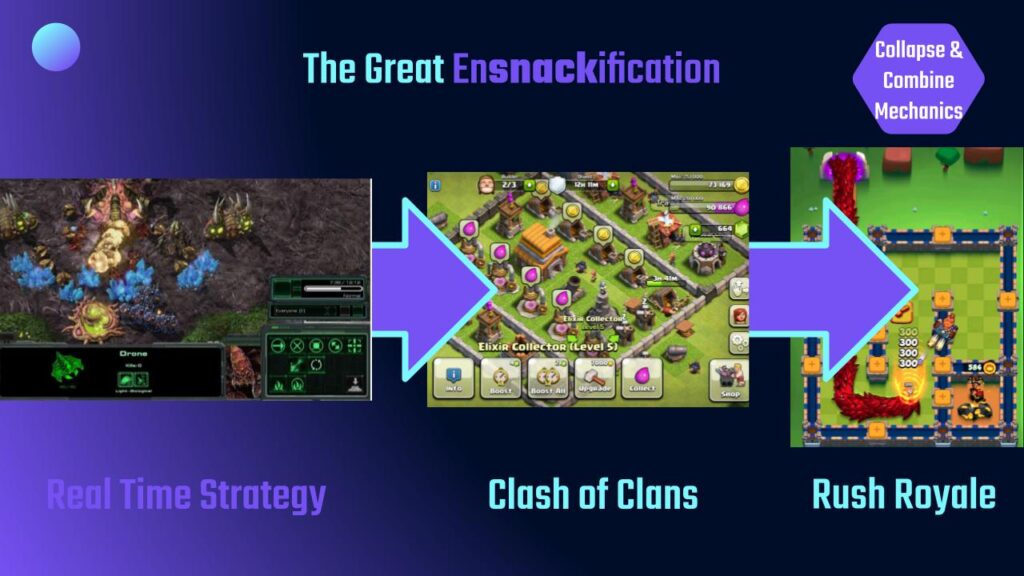
Turning all inputs into a simple swipe or tap…
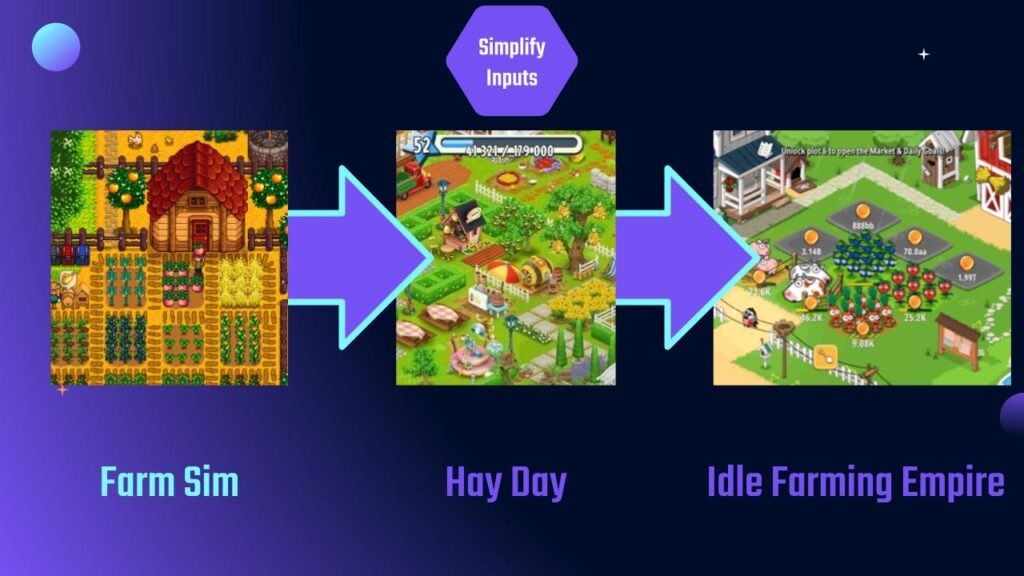
And turning high-focus twitch gameplay into low “sit back and experience” gameplay.
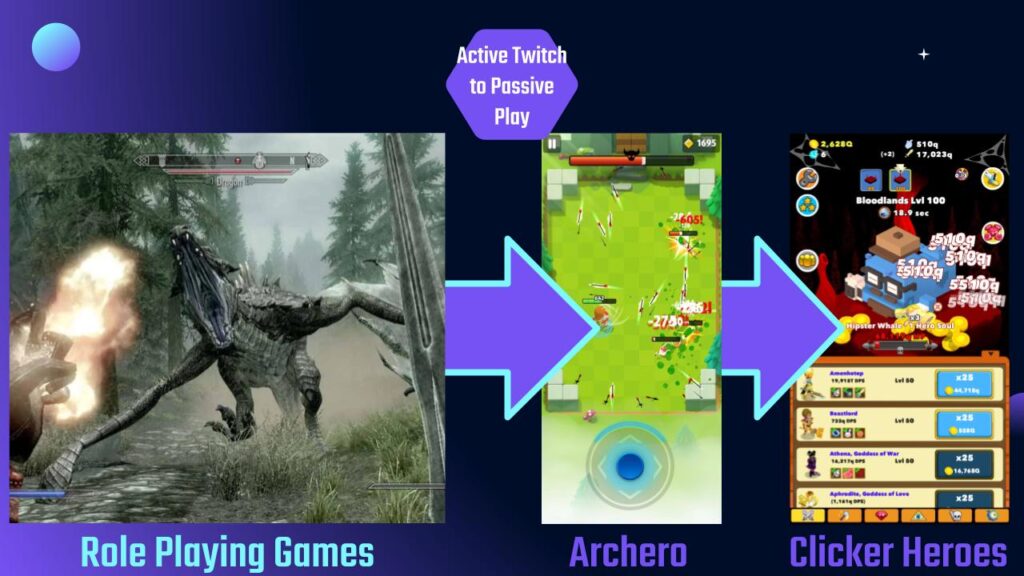
T3-MCC may feel stupid to “real” gamers, but it is not a dumbing down. It is a condensing and collapsing of gameplay into a focus on moment to moment emotion and reaching a flow state.

Gambling is Forever
Finally, it’s clear that casino games — even social casino with no payouts — are here to stay. It is currently an $8 billion business and only projected to grow.
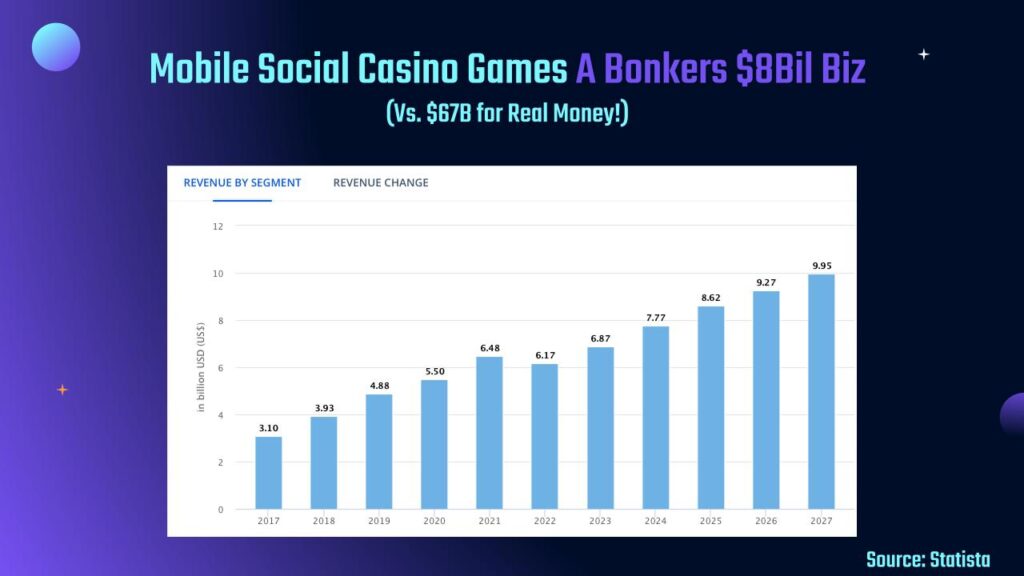
It shouldn’t be surprising that games of chance are so beloved. After all, all of history and even our very existence is based on randomness. If your mother or father (or the doctor holding your test tube) paused to scratch their nose at the moment you were conceived, a different sperm would have fertilized the egg and you would be a completely different person. You and everything about you are just the result of the spin of DNA’s slot machine.
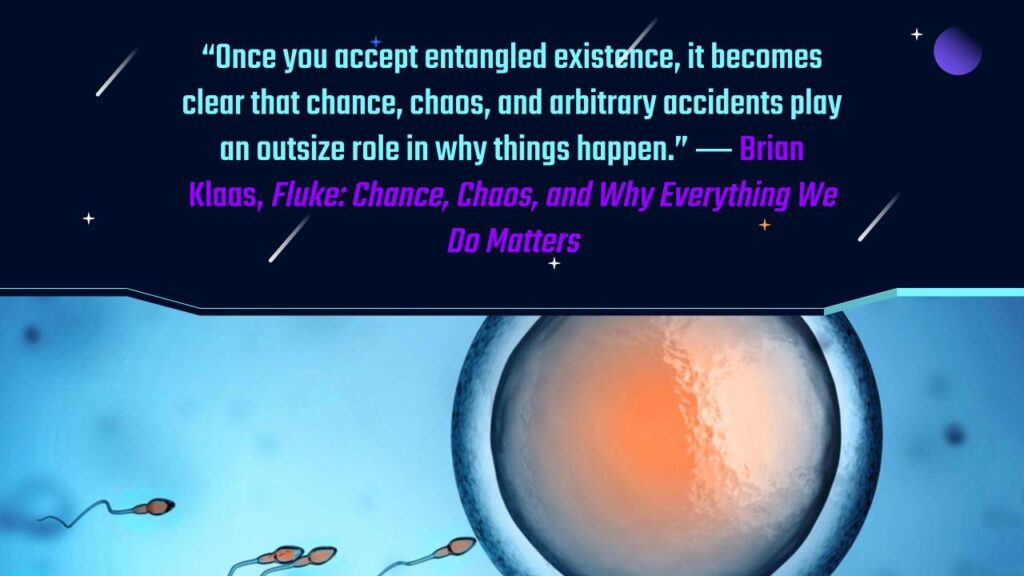
And while Social Casino was already a hugely popular genre of game, T3-MCC games like Coin Master expanded the scope by making things feel more exiting, requiring slightly more attention span and player choice.
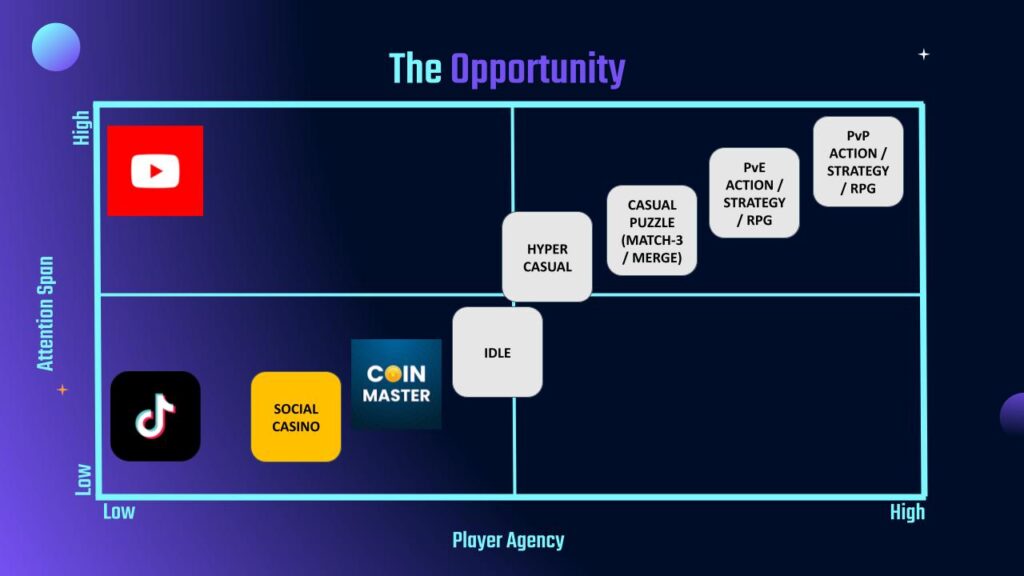
By doing so, they blew out the typical Slots audience to capture players who are younger and more male — even reaching countries that usually don’t play gambling games.
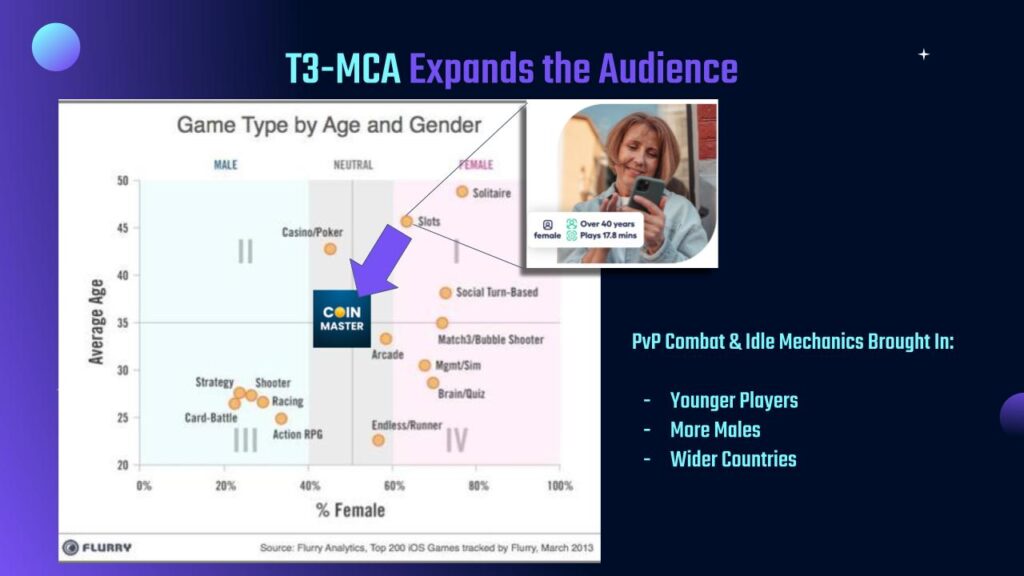
What’s Next?
So you want to build your own T3-MCC game? Don’t try cloning… there are just too many out there, and most aren’t getting the critical mass of friends — or revenue — they hope for.
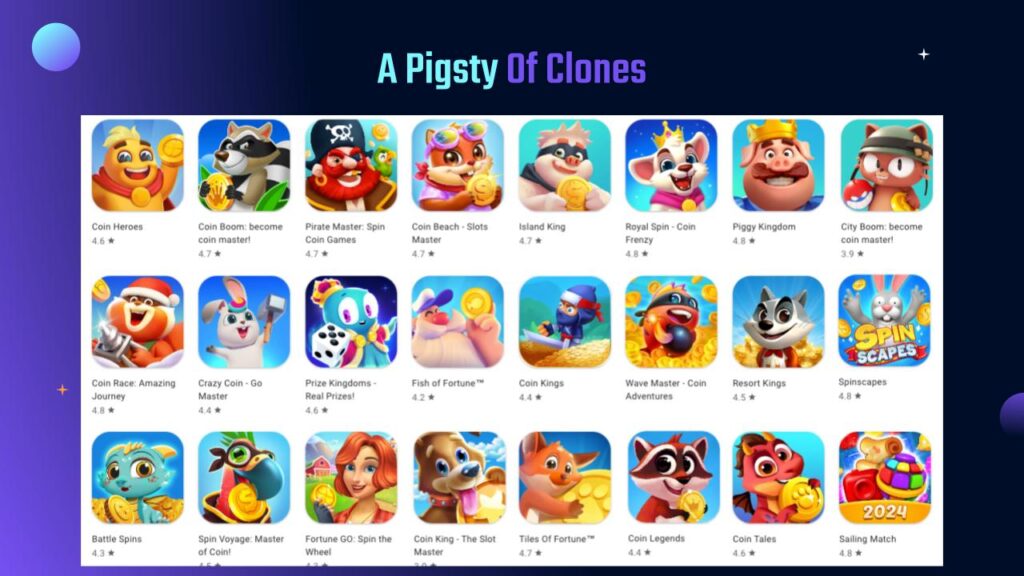
But there are, I believe, ton of fresh fields to plow. First off you can experiment with new casino mechanics:
- Video poker
- Keno
- Blackjack
- Bingo
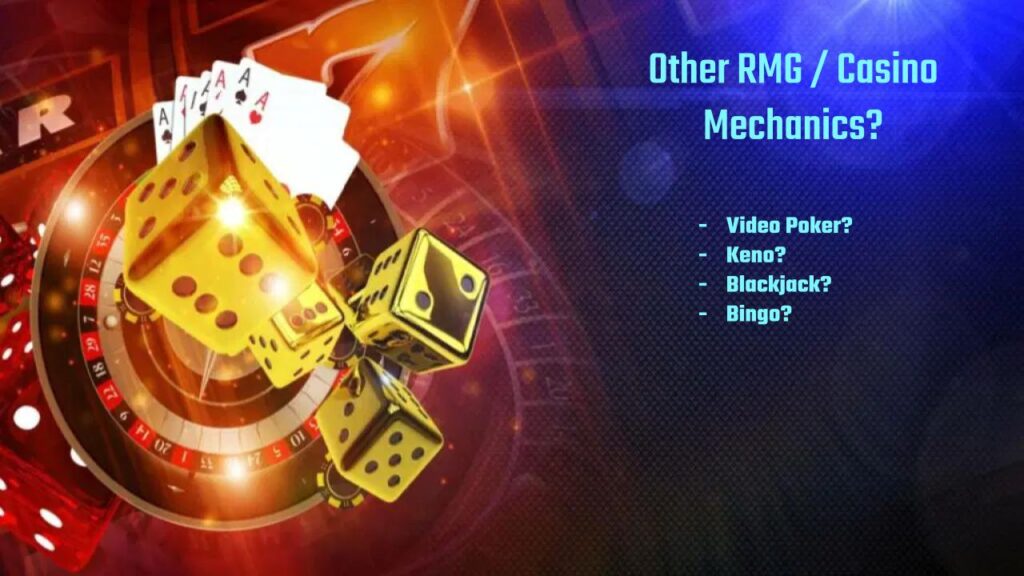
It’s also worth looking at the ‘hip’ new genres appearing in the real money casino worlds such as the crash game — where you need to “push your luck” and stop the flight of an airplane before it crashes. The longer you wait — the more money you can earn.
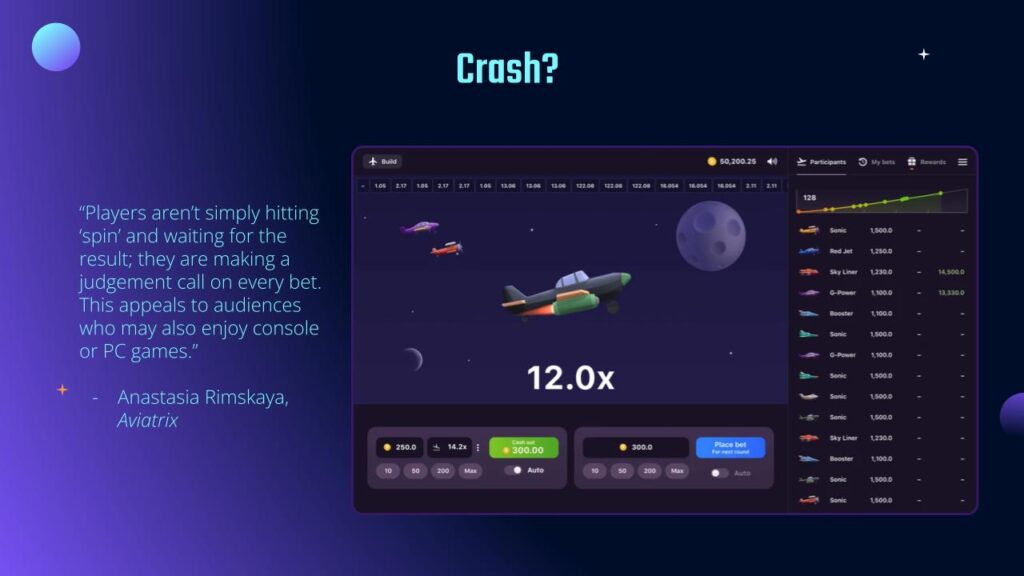
A pachinko-style of game with “fake physics” may also be a fun direction to try.
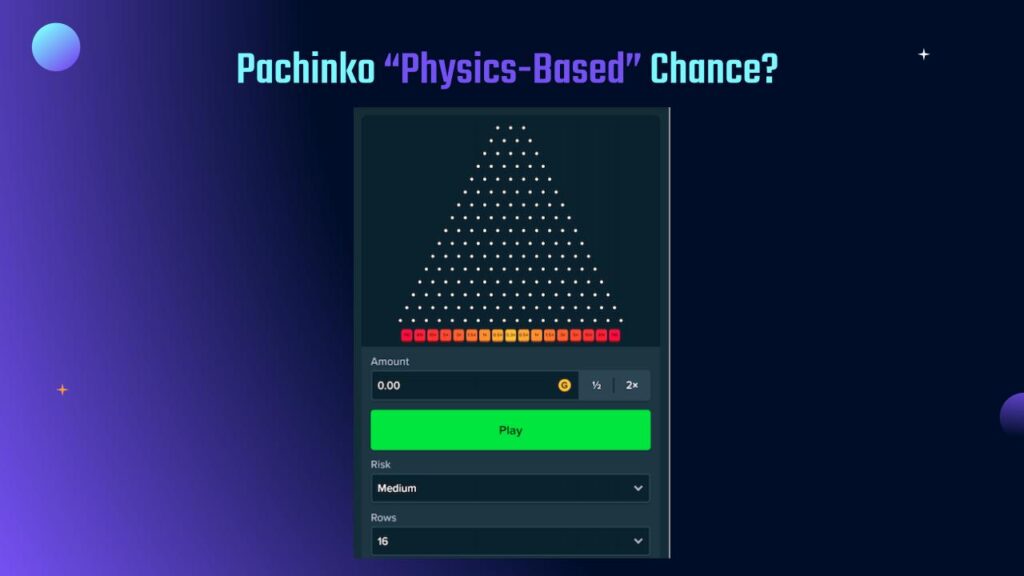
The game Treasure Tails attempted something like this, but the game didn’t make it through soft launch. The game was exceptionally high quality and apparently metrics were “great” but UA couldn’t be made profitable.

The blockchain game King of Destiny uses card draws and light deck-building vs. slot reels.
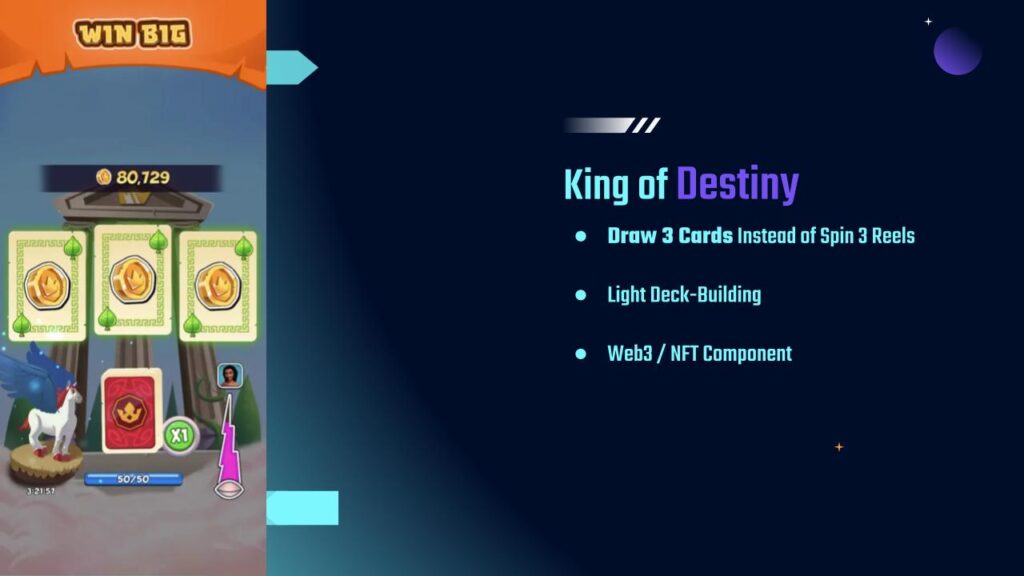
The game Go-Go Magnet has your ship pull random ‘treasures’ from the sea floor using a giant magnet. You then can manually merge those treasures for a bit of an extra bonus.
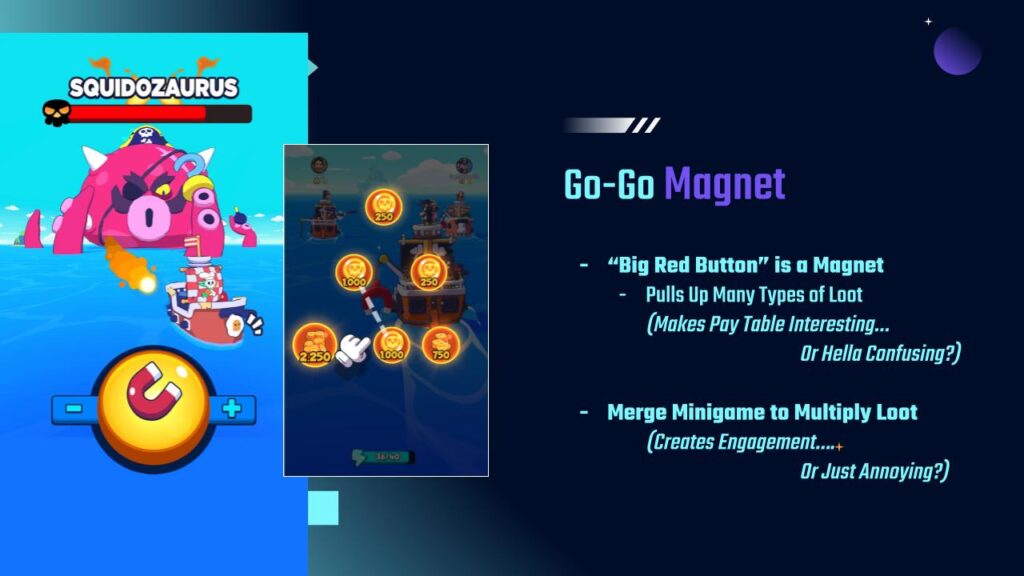
Further, the game SpinCraft lets you modify the reels of your own slot machine using Rogue-Like mechanics — adding on new symbols or multipliers that keep things fresh.
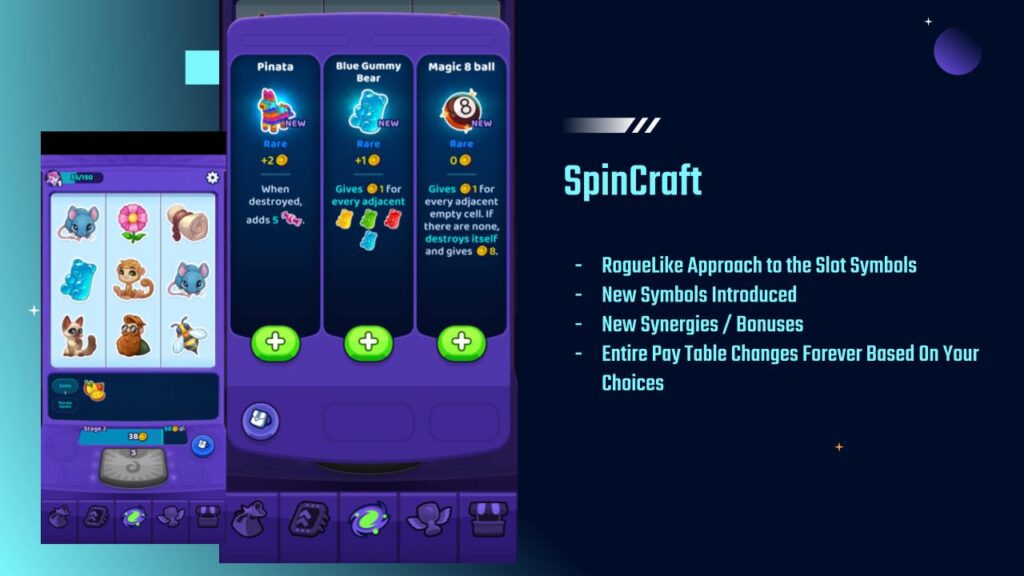
The game Cascade is interesting to look at as well. Each “spin” adds random gems to a tray — you can then use those gems to clear out a given column and try to match three, achieve cascades, and clear the boards.
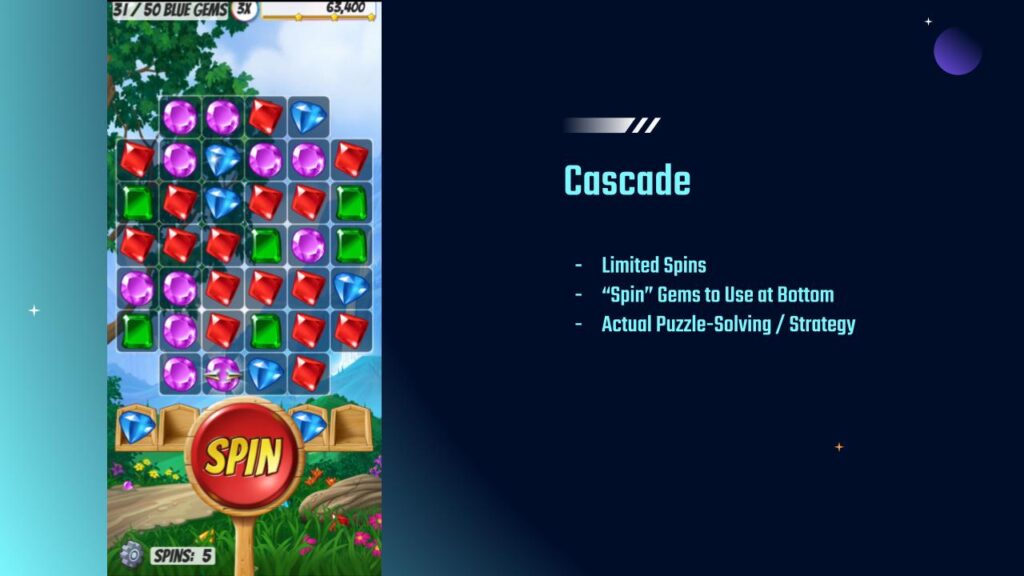
Finally — a large departure from the pure-chance tap-tap-tap is the game Animals & Coins, recently acquired by Playtika. This title uses “one tap” hyper-casual game as its core. You must hold the energy button and build a bridge from island to island — you must build the bridge tall/long enough to reach, but not too tall or you waste your energy. Each island gives a random “loot drop” of coins or an MCC-style attack/raid.
Playing the main game requires (a bit) of actual focus and skill. It’ll be interesting to see how audiences respond.

Better Meta-Game / City Building
Improving the meta-game is also a fruitful place to try innovating.
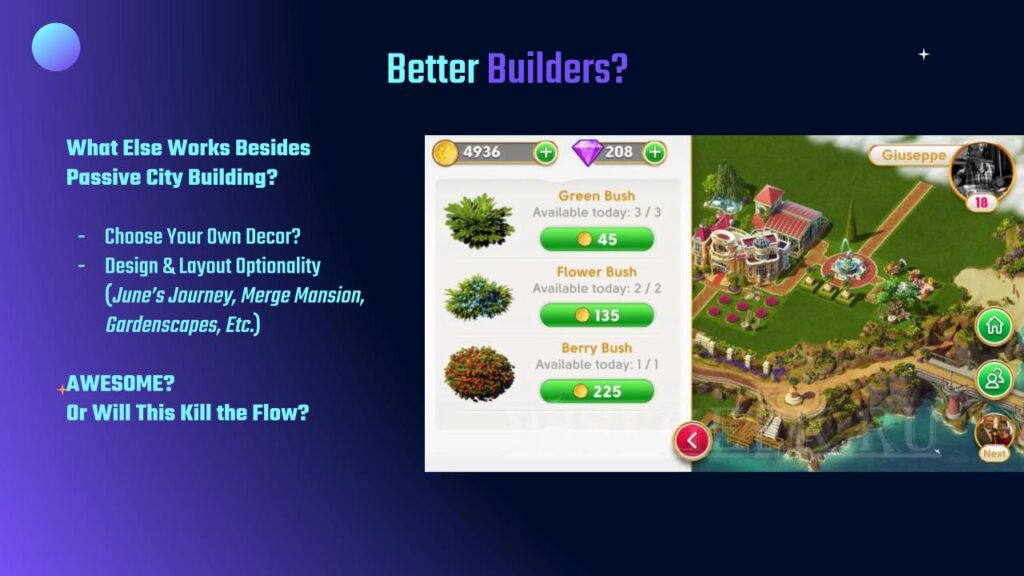
The question is, would players want to choose their own decor and position buildings / furniture creatively — or do they actually prefer mindless tap-tap-tap?
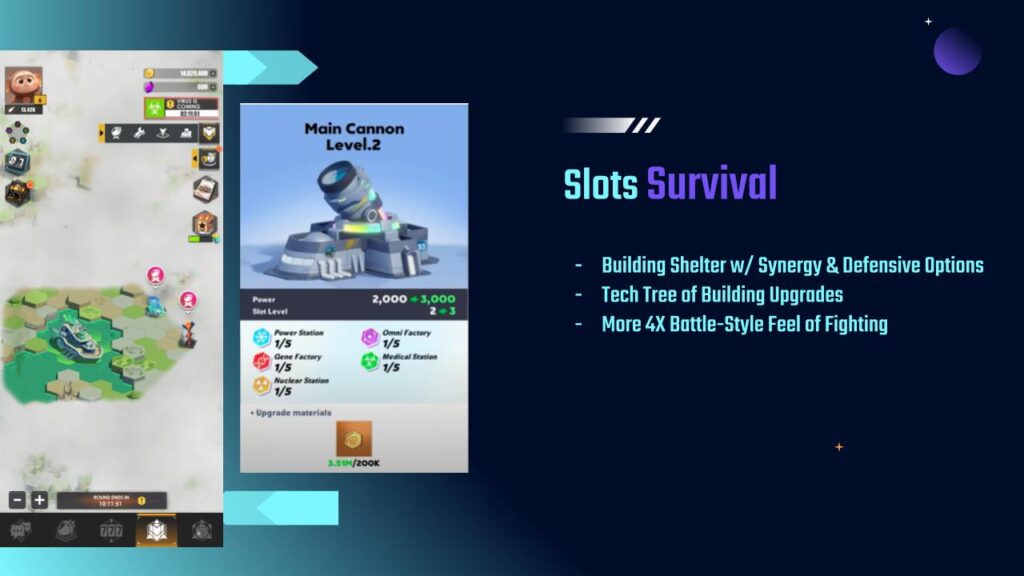
The game Slots Survival gives players the feeling of base-building with pre-requisites and some shelter and defensive options.
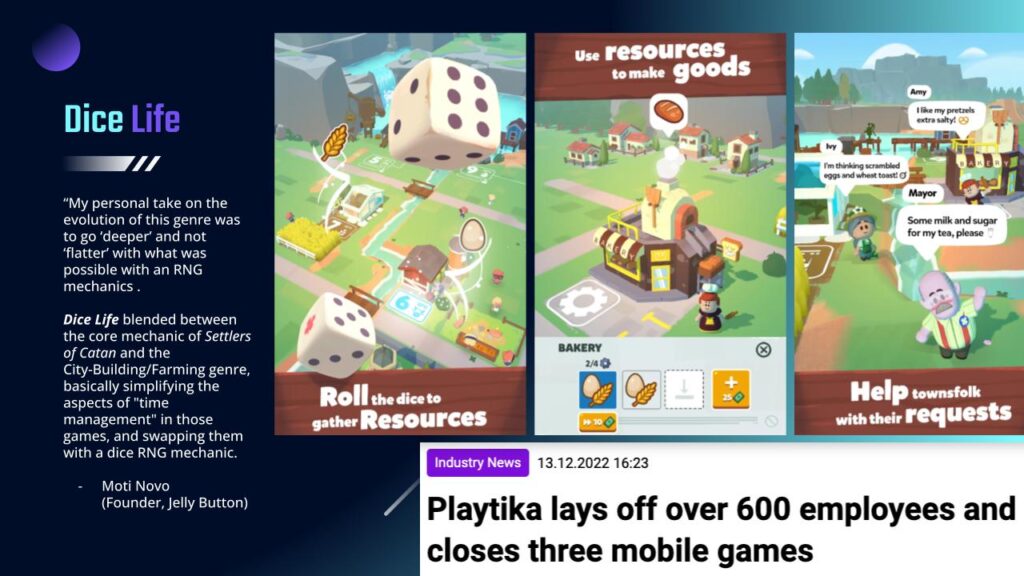
And Moti Novo, who designed Cash King — the original game that kicked the genre off — worked on a game called Dice Life. This title apparently had a lot more depth with various resources, building types, etc. The idea was to feel more like the board game Settlers of Catan and other farm-builders. Unfortunately the game was cancelled by Playtika before it got too far. Bad timing (randomness again)? Or was the gameplay too complex and deeper than what players really hungered for?
More Tactics
Playing with different combat types and choices may also prove fruitful. Ideas like character stats, equipment that can change the battle outcome, skill points and tech trees, breeding and evolution, etc. are staples of RPG games.
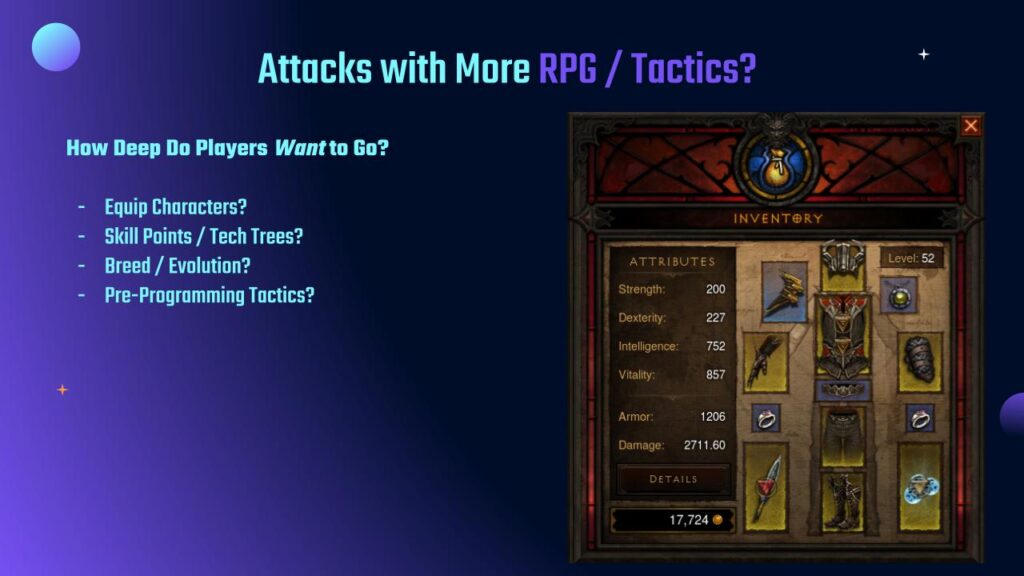
Can they work for T3-MCC games? Lucky Buddies attempts to swap city building with character building — where you level up your troops with weapons and armor to defeat ever-tougher bosses.
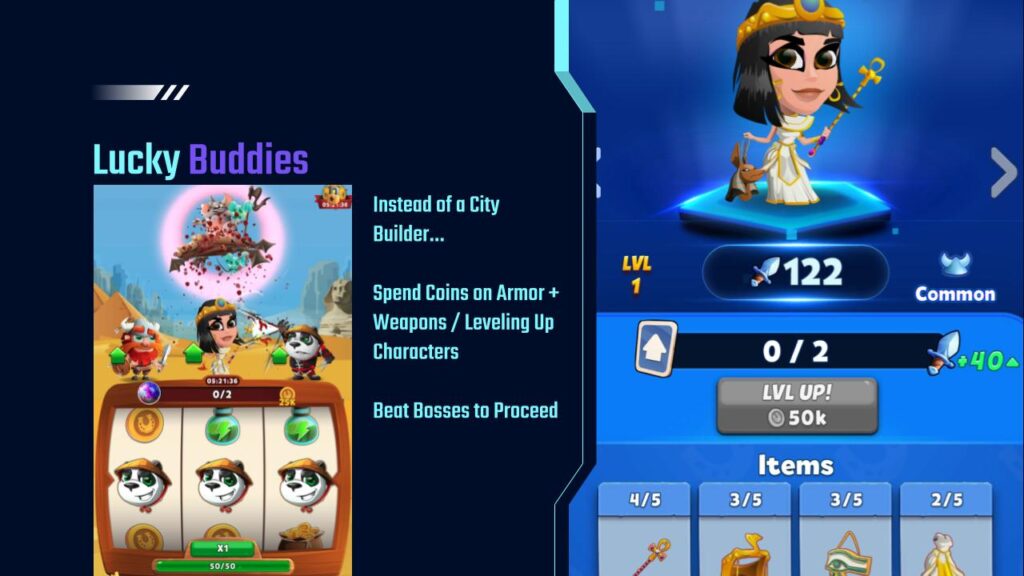
And the game Slots Survival turned battle into a mini dice game, with some RogueLike choices of Buffs as you progress.
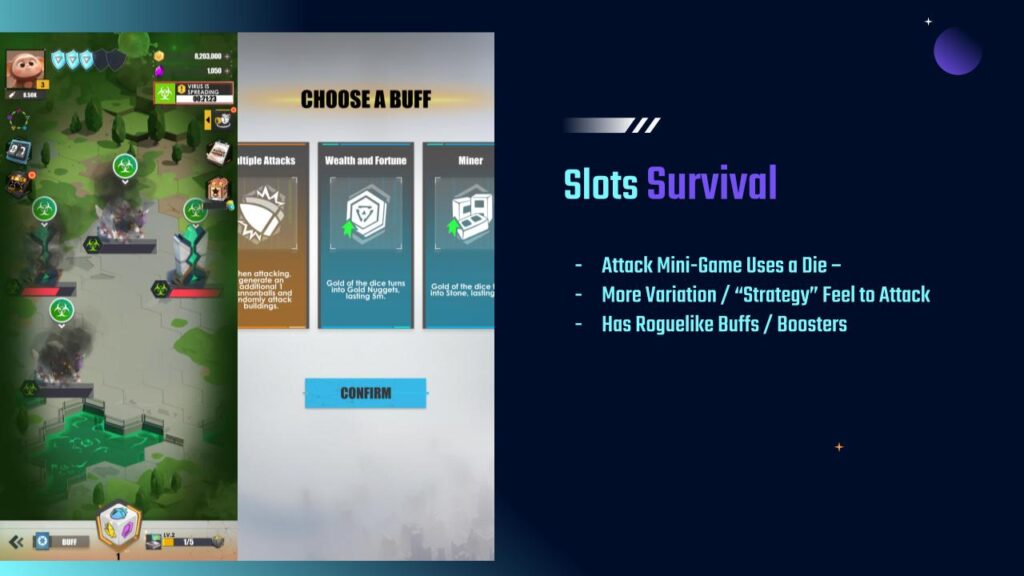
To add in a tad of self-promotion, our own game at Double Coconut (published by Sky Mavis) — Axie Golden Road — puts a new spin on things. Unlock cute little monsters called Axies, put them in squads, and use them strategically to defend or attack specific floors of a battle tower. Our goal is to achieve the feel of an RPG Fighter with tactical base-building but to keep the ease and flow-state that makes T3-MCC games so magical. We also of course may roll in web3 “own your asset” and reward components.
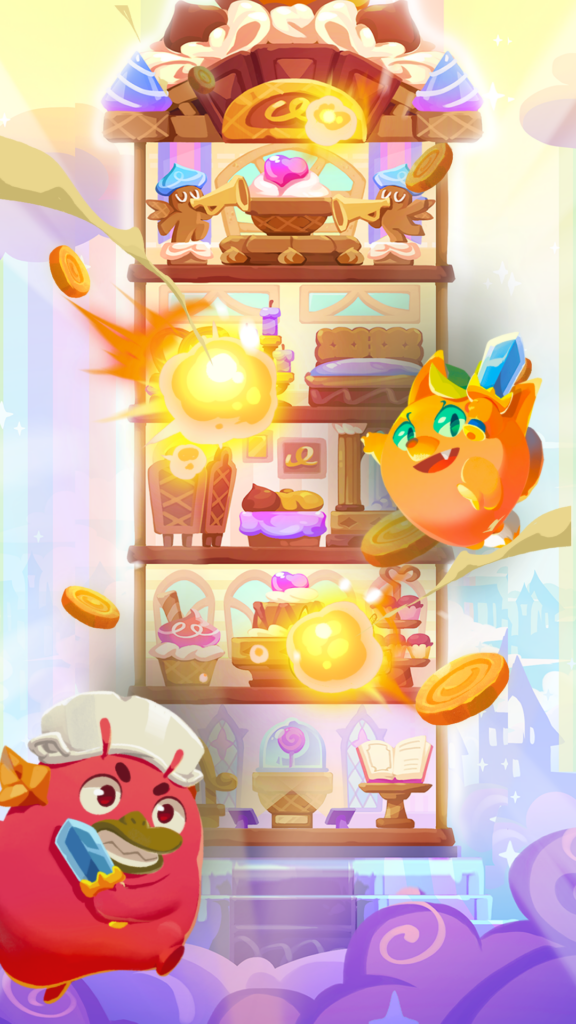
Go Make Some Magic
Building a T3-MCC game may seem “easy.” Hopefully it’s clear after skimming this article that it is exceptionally difficult to deliver and operate this genre of game and involves really unique game design skills — not to mention some competitive advantage on marketing in order to acquire players at reasonable cost in a very crowded market.

T3-MCC Designers need to be true data analysts who are able to create a casino-style machine that feels random but also tightly calibrates the economy to deliver deterministic session times and ensures that players stick around long enough to have fun… also running out of energy at crucial moments, leading to them wanting to buy more.
The look and feel of the game also needs to downright perfect — since everything a player does is so simple and involves little choice or skill, every moment needs to feel wonderful and fresh and worthy of seeing dozens upon dozens of times… ideally making a non-choice still feel like a sweat-inducing moment.
I believe there is a ton of opportunity here. The T3-MCC approach is not just a passing fad — but a whole new way that a whole swath of gamers enjoys “playing” and spending some cash. The next Coin Master will no doubt surprise us all with a brand new twist that feels at once obvious, simple, and like magic.


Leave a Reply